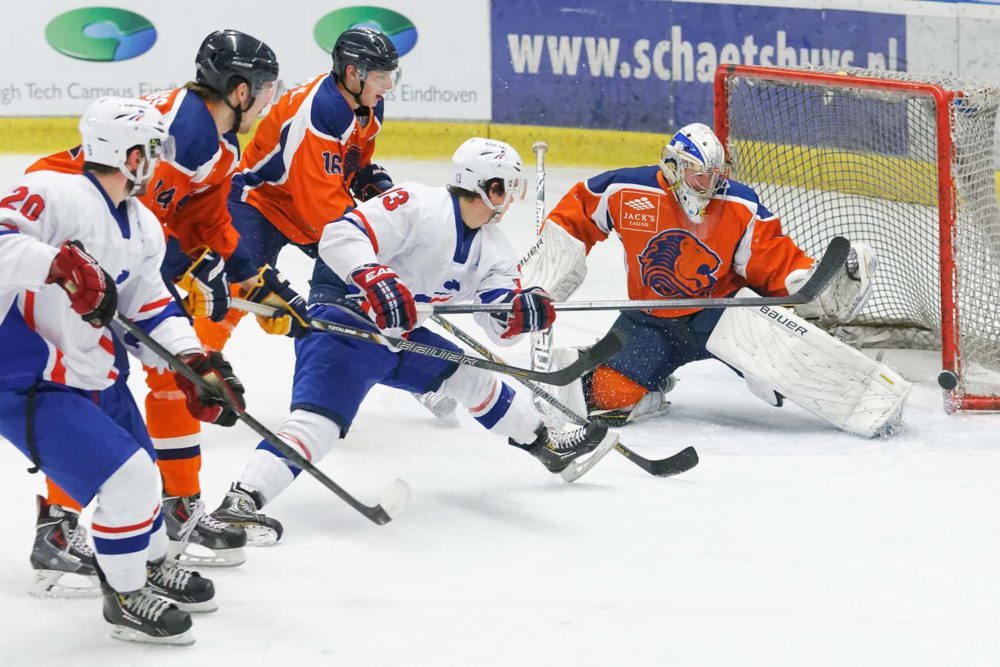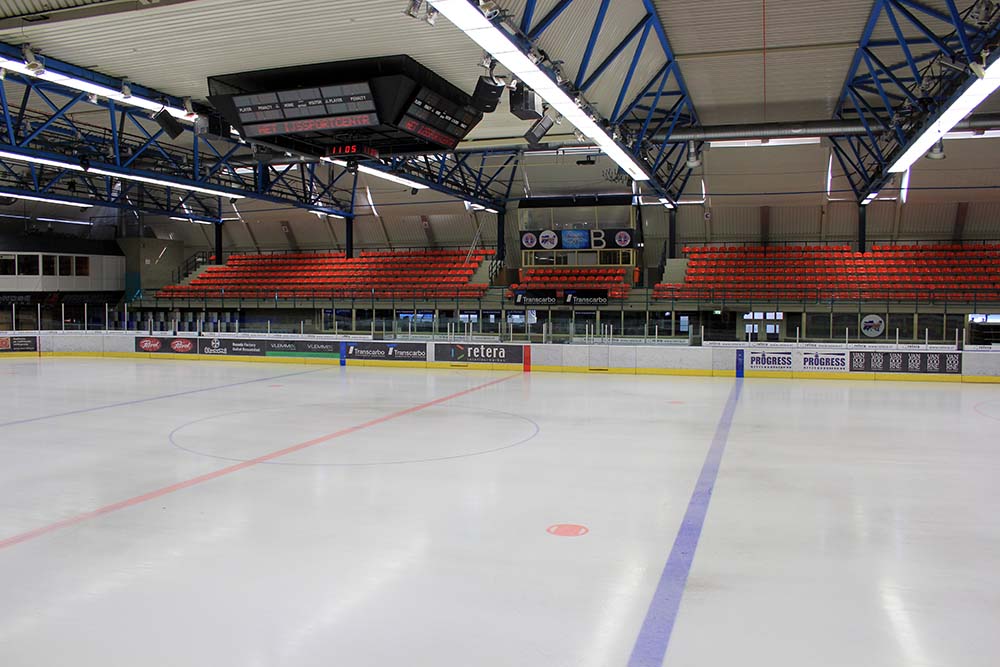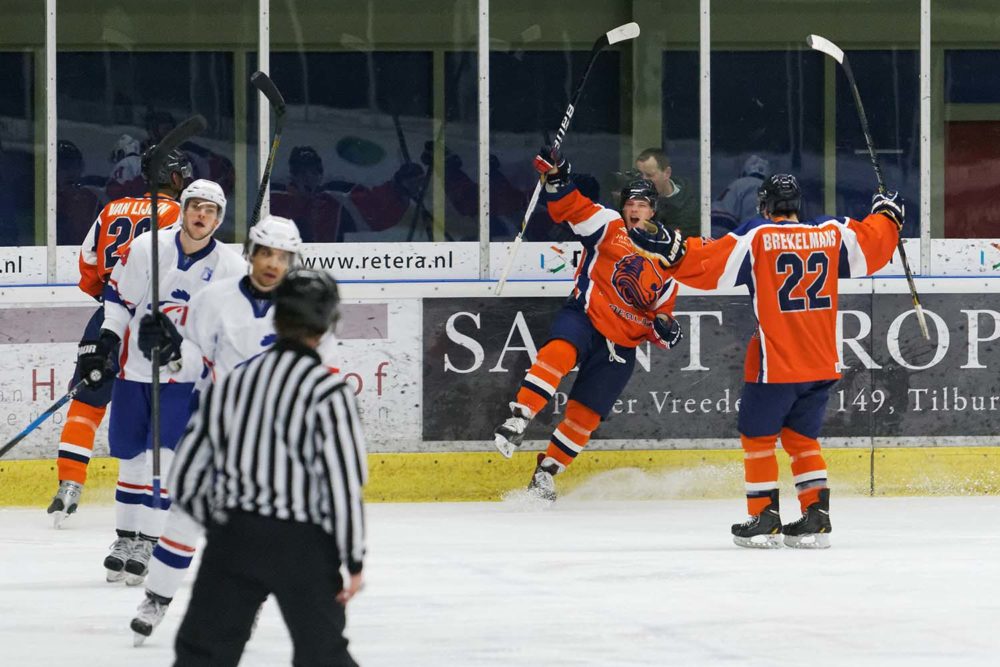After taking a look at hockey’s early history, Dutch leagues and the national governing body in part one of our series on hockey in the Netherlands, we’ll examine the country’s challenge growing the game within its borders and the performance of its national team.
Perusing through the sports section of the largest Dutch newspaper De Telegraaf, one will of course find headlines from the latest soccer matches, speed skating results, maybe a bit of boxing coverage, and somewhere on the page you may even find hockey… field hockey.
The Struggle to Gain National Attention
In spite of the popularity of speed skating and field hockey in the Netherlands, ice hockey doesn’t enjoy the same prosperity, although its seemingly a mixture of the two.
When asked about the sport’s popularity in the Netherlands Arnoud van Berkel, Executive Director, Ice Hockey Association of The Netherlands, had this to say, “the Ice Hockey Association of the Netherlands (Nederlandse Ijshockey Bond – NIJB) has 4,000 registered members. Some people follow other leagues such as the DEL, KHL and NHL. Many people are interested in hockey on TV (Olympics and top level world championships) and many people will skate with a stick and puck when canals and ponds are frozen, but the interest in attending live games is low.”

To put van Berkel’s comments into perspective, Tilburg – the nation’s most successful club team – only attracts about 2,000 fans a game, while the other clubs hover around the 500 range. The best way to grow the game is at the grassroots level, but it’s very difficult to capture the attention of today’s youth.
“Developing the game of ice hockey is a challenge for all countries. Due to competition from many other sports and other activities, kids have a wide range of choices in dealing with their leisure time,” says Theo van Gerwen, Sports Director, Ice Hockey Association of the Netherlands. “Quantity and quality go hand in hand when it comes down to developing talent and the game on its own.”
Building for the Future
The NIJB has many ambitious goals for Dutch hockey and remains dedicated on building a strong foundation for sustainable success.
“In the Netherlands, the goal is to obtain more respect, exposure and enthusiastic followers. To do so, it is very important to build a strong foundation with a strong organized structure on national and club level and a strong sense of fair play and respect towards each other,” say van Gerwen. “On this foundation four strong pylons give structure to a solid house: 1) The National Ice Hockey Academy, 2) coaching education, 3) national team programs in a national training center and 4) strong clubs.”

One event that the NIJB is hoping to leverage to grow the game of hockey is the World Championship. The Netherlands won the right to host the 2015 Division I, Group B World Championship in Eindhoven. Joining the Netherlands in the tournament will be five other nations: South Korea, Lithuania, Great Britain, Croatia and Estonia. Putting the Netherlands back on the international platform is a welcomed opportunity.
“Organizing the World championship in our national training center will give our sport the next boost to build on our strong structure,” says van Gerwen. “The organization of the World Championship means: an inspiring event for young players, an experience for young athletes who consider playing the game, an educational environment for experienced and inexperienced coaches and a platform that brings our sport to a wider range of enthusiastic sport admirers.”
Dutch Hockey on the International Stage
Although the future is bright for Dutch hockey, the nation is far removed from its glory days. Dutch hockey reached its pinnacle on the international stage when they qualified for the 1980 Winter Olympic Games. The team was led by Ron Berteling, more affectionately known as Mr. Ice Hockey Netherlands. During the Games, after convincing losses to Canada and the Soviet Union, the Netherlands tied Japan and beat Poland, before concluding their tournament with a loss to Finland.

The following year, the Netherlands reached their highest world ranking when they finished 8th at the 1981 World Championship. Currently, they’re ranked 24th, but have high ambitions. According to van Berkel, the goals of the NIJB include, promotion of the men’s national team to Division I A, the national women’s team qualifying for the 2018 Olympics and the national men’s team qualifying for the 2022 Olympics.
While there may be much work ahead, Dutch hockey appears to be primed for growth, starting with this Spring’s World Championship in Eindhoven. There has been a strong foundation put down. Now, the product on the ice must deliver to gain both domestic and international exposure.
Thank you for your story on Dutch hockey. Refering to part 1, it is not surprising to find a decrease in the results of the NIJA, let’s say ‘the Dutch Hockey Academy’. Over the last years it has become clear that talented and well trained youngsters have their breakthrough in the Dutch Eredivisie (the highest Dutch hockey level). Initiatives alike demonstrated a major improvement of young players in several European countries as well. This NIJA development programm for young talented players now has to find new resources to keep the long term programm on course. Considering the fact that there are only 3+ people working at the NIJB headquarters, it is a difficult course to run. All proposals to generate resources should be embraced as the future of hockey in the Netherlands relies on the development of young talents. To indicate the difference between playing hockey ‘at home’ or whilst surrounded by the environment of the NIJA (Hockey Academy) it is best to take a look at the hours per week spent on the ice: 3 to 5 hours practice time versus roughly 8. In the NIJA Hockey Academy environment a guaranteed level of support on and off the ice is present and the ‘Crosbies to be’ are also supported to aquire a certain educational level. As strange as it might seem, in a small country like The Netherlands, there is a lot of stand alone thinking. The teams are devided when it comes to the point of talent development in a centralized manner. This is exactly why the NIJB (Dutch Hockey Association) hesitates to take a clear stand as it might risk the support of one or more teams. The solution is to find in the thesis that teams should not ask what the NIJB can do for them, but what the teams themselves could do for the future of Dutch hockey in general. On the other hand, one doesn’t need to be a teacher in mathematics to calculate that organizing a world championship itself will not automaticaly lead to a positive result. The NIJB might refocus on its first point of attention: the young Dutch hockey players.
Hi,
Thanks for the read and the very insightful response.
I agree, the game must be grown at the grassroots level. It’s interesting to consider all of the internal politics involved in the development of Dutch hockey. I really hope that such a thing doesn’t hinder the games development. Very curious to see how this works out over time.
To bad that there’s nothing in for the referee’s we have at the top levels. Because Joep Leermakers is more successful as a referee than the dutch ice hockey. He refs games in the DEL, Top league in France and was at the last IIHF World Championships in Minsk.
Too bad a missed opportunity to get the dutch referees in the pictures.
Hi
Thanks for the read and taking the time to comment.
This is a very interesting angle that I didn’t know about. Perhaps in the future, we can do an article more about the individual coaches, players, refers and other professionals involved in Dutch hockey.